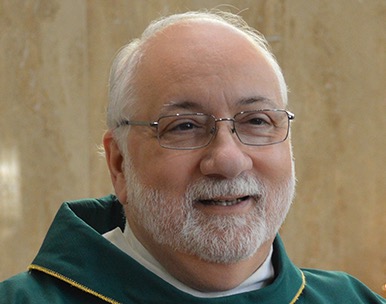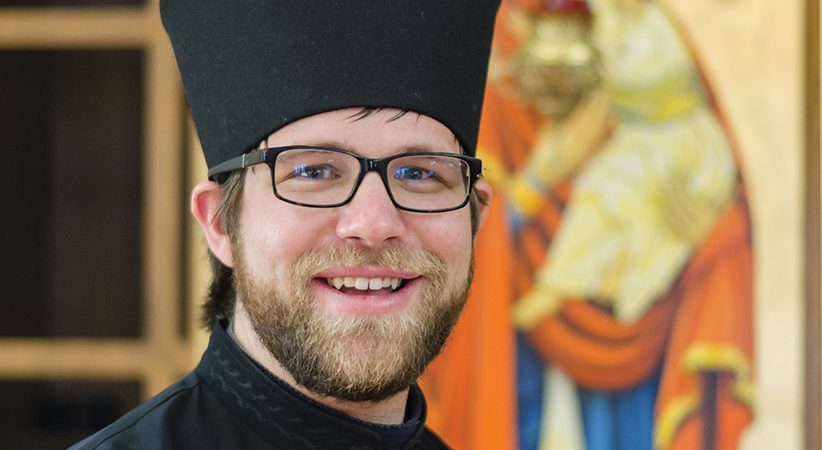Ministering to a Grieving Church
Deacons can have a healing role amid the abuse scandal
Deacon Dominic Cerrato Comments Off on Ministering to a Grieving Church
 The scandal involving sexual abuse by certain priests, along with the recent revelation of diocesan and seminary corruption, have rocked the Church to her foundation. Because the Church is the Mystical Body of Christ, when one part is wounded, the whole body suffers. The scandal has undermined our credibility to proclaim the Good News, diminished the trust the faithful have in us and betrayed the confidence placed in the Church by the Lord himself through the gift of his Holy Spirit.
The scandal involving sexual abuse by certain priests, along with the recent revelation of diocesan and seminary corruption, have rocked the Church to her foundation. Because the Church is the Mystical Body of Christ, when one part is wounded, the whole body suffers. The scandal has undermined our credibility to proclaim the Good News, diminished the trust the faithful have in us and betrayed the confidence placed in the Church by the Lord himself through the gift of his Holy Spirit.
These self-inflicted wounds to the Body of Christ are still fresh and will take a long time to heal. That said, they will heal, and Christ ultimately will triumph. Until then, those good bishops, priests, deacons, religious and laity will be left to minister to a grieving Church.
In this ministry, great care must be taken not to substitute our own pain for those who were victimized. True, we share in it, but not to the extent and degree they did. Returning to the image of the Body of Christ, these poor souls live at the very site of the wounds, in Our Lord’s head, hands, feet and side. To these suffering and often abandoned men and women, we must help them find refuge in a Church whose authentic ministry and sacraments lessen the suffering and find new hope.
Just as the diaconate plays a vital role in the life of the Church, so, too, it plays a vital role in this healing process. Deacons stand uniquely at the crossroads of the world and the Church. As a result, the laity strongly identify with us, particularly as husbands and fathers. This identification makes possible new bonds of trust where trust previously was weakened by scandal. The deacon does this not to eclipse the ministry of the priest but to act as an intermediary drawing the faithful, especially those victimized, back to good priests and the gift of Christ’s healing love expressed in the very sacraments they confect.
It seems to me that, as deacons, we engage this scandal on two fronts: direct and indirect. Beyond our responsibilities as mandatory reporters and the legal implications, to the extent a victim is made known to us, and to the extent he or she is open, we can be present and listen. Our availability makes possible a relationship out of which we simply can be there for them as they need us. This is direct, because it directly engages the person seeking healing. Our ministry is not so much to cajole them into Mass attendance or to greater participation in the life of the Church, as noble as these things are. Our ministry as servants is to see the crucified and Risen Christ in them and, at the very same time, to become Christ by extending his loving presence.
The vast majority of us, no doubt, will engage this scandal indirectly. Here we are not tending to the wounds themselves, to the victims, but to the rest of the Body of Christ as they seek to make sense out of the situation. They, too, will need time to talk, processing this tragedy and its implications particularly as it relates to their families. In such a situation, as with listening to victims, we should avoid the temptation to do something to “fix” the problem. Instead, we should do as Mary did and sit at the foot of the cross awaiting the Resurrection. Just as her loving gaze gave comfort to her suffering Son, so, too, our empathetic gaze will bring comfort to those who suffer greatly.
Finally, we must never forget the power of prayer and personal sacrifice. In the midst of such a scandal God has not abandoned his Church, as “where sin increased, grace overflowed all the more” (Rom 5:20). We can be assured that Our Lord has released a superabundant storehouse of grace. Ours is to be open to this grace. Ours is to distribute this grace freely among those entrusted to our care. Ours is to extend the healing love of Christ the Servant and, in doing so, minister to a grieving Church.
DEACON DOMINIC CERRATO, Ph.D., is editor of Deacon Digest and the director of Diaconal Formation for the Diocese of Joliet, Illinois. He is founder of Diaconal Ministries, where he gives national presentations and retreats to deacons and diaconal candidates. Follow him on Facebook to continue the conversation.



